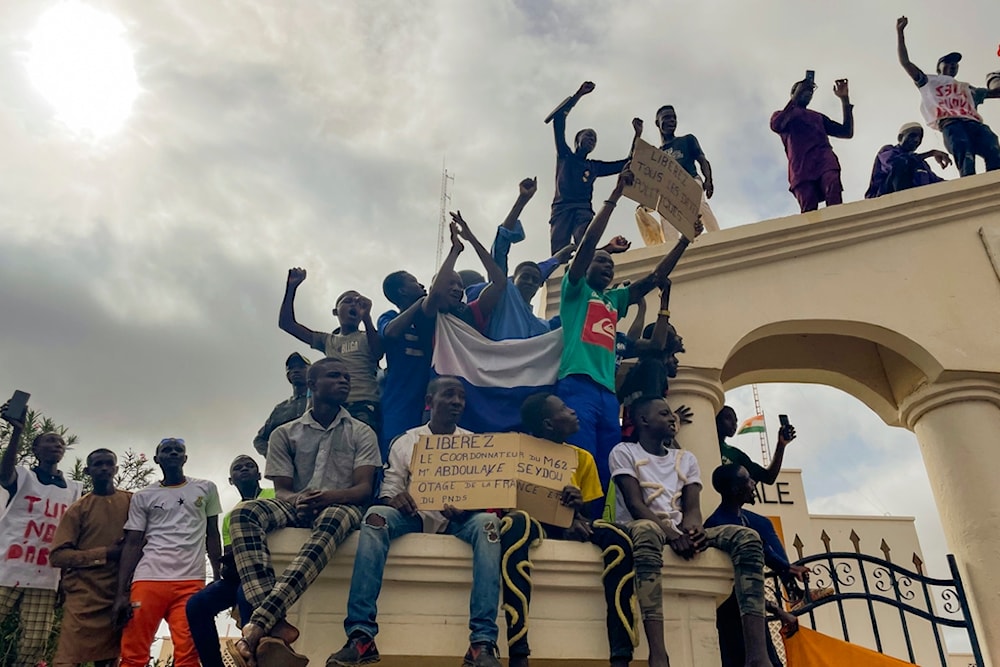US should terminate defective counter-terrorism programs in Africa: RS
Dr. Gordon Adams critiques the approach of prioritizing military solutions over governance and economic development in combating terrorism and fostering stability.
-

Supporters of Niger's ruling junta gather at the start of a protest called to fight for the country's freedom and push back against foreign interference in Niamey, Niger, August 3, 2023. (AP)
An op-ed published on Responsible Statecraft by Dr. Gordon Adams details the many failures of US foreign policy and criticizes its counter-productive nature.
Gordon critiques the approach of prioritizing military solutions over governance and economic development in combating terrorism and fostering stability.
Gordon first argues that US engagement in global affairs, especially through military interventions and security assistance, has consistently failed. Examples cited include missions in Iraq, Afghanistan, and more recently, efforts in West Africa.
According to him, the focus on military solutions has rather exacerbated security challenges rather than resolving them.
He then proceeds by criticizing the role and function of the Defense Department, particularly in Africa where this "security first" approach, which prioritizes military over civilian governance, has not only failed to improve security but has also contributed to political turmoil and increased terrorism.
Read more: On Niger's orders, US initiates withdrawal, albeit 'slow'
Despite efforts to support African militaries with training, weapons, and bases, governance and economic conditions have not improved, according to Gordon.
Gordon suggests that focusing on strengthening governance and economic stability should precede military interventions to effectively combat terrorism and promote stability.
He proposes reforms that prioritize good governance as a prerequisite for receiving US security assistance. This includes tying aid to conditions such as a free press, legislative oversight, and civilian control over military budgets.
However, these proposals have not gained traction within US policy circles.
The piece concludes with skepticism about the effectiveness of proposed reforms and doubts about whether external powers like the US can effectively implement such changes in governance and development.
Read more: 20 years on, US-led Iraq War atrocities revealed in numbers
In March, Niger terminated defense cooperation with the United States, citing the illegal presence of American military personnel and civilian staff from the Department of Defense within Nigerien borders.
The cooperation was severed by Niger due to perceived unfairness and as a tool used by the US to undermine the nation's sovereignty.
Nigerien Prime Minister Ali Mahamane Lamine Zeine later disclosed that the US had also threatened Niamey with sanctions and cautioned against strengthening ties with Iran and Russia.
Recent reports have shown that the remaining US troops in Niger were suffering immensely due to shortages of medicines and essential supplies.
Following the ousting of pro-Western President Mohamed Bazoum in July 2023, Niger's new government assumed power. Subsequently, Niamey severed relations with its former colonial ruler, France.
While Paris completed the withdrawal of its military presence from the former colony late last year, the United States plans to finalize its withdrawal by September of this year.

 3 Min Read
3 Min Read








